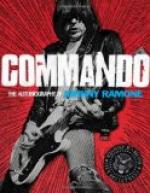Between the Magalies Mountains and the Witwatersranden stretches a long valley called the Moat. In the centre runs a gray ridge or rand, parallel to the mountains, and rising into kopjes to the east, near Hekpoort. Thither our commando moved a few days later to meet the enemy, who were approaching from Commandonek, most probably with revengeful intentions. The Moat was well provided with corn, and asked for our protection. We stayed over a day on the gray ridge. When the enemy advanced towards us on the day following, General De la Rey had taken up his position near Nooitgedacht, and so formed the left wing. Commandant Kemp, with his men, was at the south on the foot of the ridge, and Veld-Kornet van Tender, with a small troop of Zoutpansbergers, was on the first kopje, while General Beyers, with the Waterbergers and Zoutpansbergers held the right wing to the west of Hekpoort, in Witwatersrand. The whole of that forenoon the enemy were ready to attack us, and we waited calmly. Towards afternoon their left wing moved towards the first kopje, beyond the reach of the Zoutpansbergers, who were on the Witwatersranden near Hekpoort. They began firing at the position of Veld-Kornet Van Tonder, and when he fell mortally wounded his Zoutpansbergers were obliged to retire from the kopje.
Our Veld-Kornet, Kruger, a fine, brave fellow, then led twenty-five of our men towards Hekpoort, to try and stop the enemy in their forward movement. As Malherbe, my brother, and I were among the twenty-five, I cannot tell what happened to De la Rey on the other side of the gray ridge. We pressed too far forward, and soon had to retreat some distance. Our Veld-Kornet stayed behind with a few of us, on a small rise, while our horses were taken some 300 paces further back, and the rest of our little troop rode in the direction of Hekpoort. The enemy already occupied the first kopje, and were firing at us from a distance. We quickly made an entrenchment of stones and lay waiting. But our people were retreating from the other kopjes, and we had to get to our horses as quickly as possible. A few cowardly burghers on the ridge took us for khakies and fired at us. Then I experienced the difference between the aim of Boer and khaki. The latter’s bullets always flew far above our heads, but the former’s fell terribly close to us.
As yet we had retired in good order, but soon we fled in a panic. The enemy had come from Krugersdorp in very large numbers, and already occupied the high Witwatersranden behind us.
Whoever has an incapable horse had better hide in a ditch or behind a wall along with the poor, frightened women. More than once I have seen poor frightened women holding their crying children by the hand, and seeking a hiding-place near their houses during a battle. It is indeed a tragic sight!—we men, with our weapons in our hands, not able to defend them at such a time. And then a great feeling of shame came upon us. These same women had only the day before called down God’s blessing upon us, and now they cried to us to hurry, or we would be surrounded.




